Recently, Reddit user CivilReaction asked, “What’s a fact that sounds fake but is 100% true?” and there were a ton of answers about history. Here are a few historical facts that were utterly wild — whether because they were super disturbing, really implausible, or just plain weird.
*Along with responses from these Reddit threads.
1.“The Rodney King beating was only recorded because the man who filmed it was trying to record the shooting of what would be the ‘Bad to the Bone’ scene in Terminator 2 at the biker bar. The full length version of the Rodney King video features Arnold Schwarzenegger.”

2.“Star Trek is at least partially responsible for one of the most monumental events in United States political history.”

“In 2004, Jack Ryan was running for Senate as a Republican. He was running for a seat where the incumbent was a Republican who was retiring, so it should have been a very winnable seat for him.
But he was also having marriage issues with his wife: Jeri Ryan. She was an actor who just got hired for a role as a Borg named seven-of-nine in a new Star Trek series. Jack was not a fan of her now busy schedule in Hollywood while he campaigned for the Senate. That strain on their marriage eventually led to them going to divorce court.
Despite Jack asking for the details to be sealed, the California court released the details of their case which included Mr. Ryan routinely pressuring Mrs. Ryan to do sex acts in public. The scandal caused Jack Ryan to drop out of the race close to the general election. The Republicans put up Alan Keyes as their nominee, but there wasn’t enough time left to really promote him before the election.
The Senate seat ended up going to his democratic opponent in a landslide: a relatively unknown community organizer from Chicago named Barack Obama.“
—u/Apollo_T_Yorp
Nam Y. Huh-Pool / Getty Images
3.Japanese man Tsutomu Yamaguchi was in Hiroshima for work on August 6, 1945, when the first atomic bomb was dropped less than two miles away. He survived with severe burns and ruptured eardrums, and made his way home to Nagasaki. After he was treated, he returned to work. His boss called him in for a meeting to recount the bombing, and while he was telling the story, the second atomic bomb hit Nagasaki less than two miles away. Yamaguchi again survived, and recovered from his severe radiation poisoning — he didn’t die until 2010, when he was 93. While Yamaguchi was the only person honored by the Japanese government for surviving both bombs, as many as 165 experienced both bombings.

4.Speaking of radiation poisoning — “Over 70 years ago then Naval Lieutenant James ‘Jimmy’ Carter led a team that walked into a melting nuclear reactor core and shut it down safely. He got dosed with so much radioactivity (1,000x more than what we now consider safe), he pissed radioactive whizz for months. Yet he outlived not only his Presidential successor but his successor. He’s the nation’s oldest President ever, and recently celebrated his 77th wedding anniversary, also a record for a President. … The man is made of iron.”

5.Also, re: Jimmy Carter…both Carter and former president Bill Clinton allegedly lost nuclear codes while in office. Carter apparently kept them in his jacket, then sent said jacket to the dry cleaner’s, and Clinton allegedly “misplaced” the codes, which were missing for months.

6.The man who overthrew the Hawaiian monarchy and eventually convinced the US to annex the territory was Sanford B. Dole, an American (he had been born in Hawaii, but to American parents) businessman dealing in the booming sugar industry in Hawaii who wanted to make his own job easier and more lucrative. He made himself president of Hawaii, and his cousin James Drummond Dole came to live with him, apparently idolizing him and hoping to make his own fortune in planting. Dole began farming and canning pineapples, founding the Dole Food Company that’s still responsible for canned pineapple and treats like Dole Whip today.

7.The lack of mummies in museums is because we used to eat them. In the 16th and 17th centuries, many Europeans would consume “medicines” made from human corpses that were supposed to cure a number of different maladies. Some were from burial sites, stolen from gravediggers — other medicines were made from mummies stolen from Egypt. They’d crumble them and create tinctures as well as make powders out of skulls.
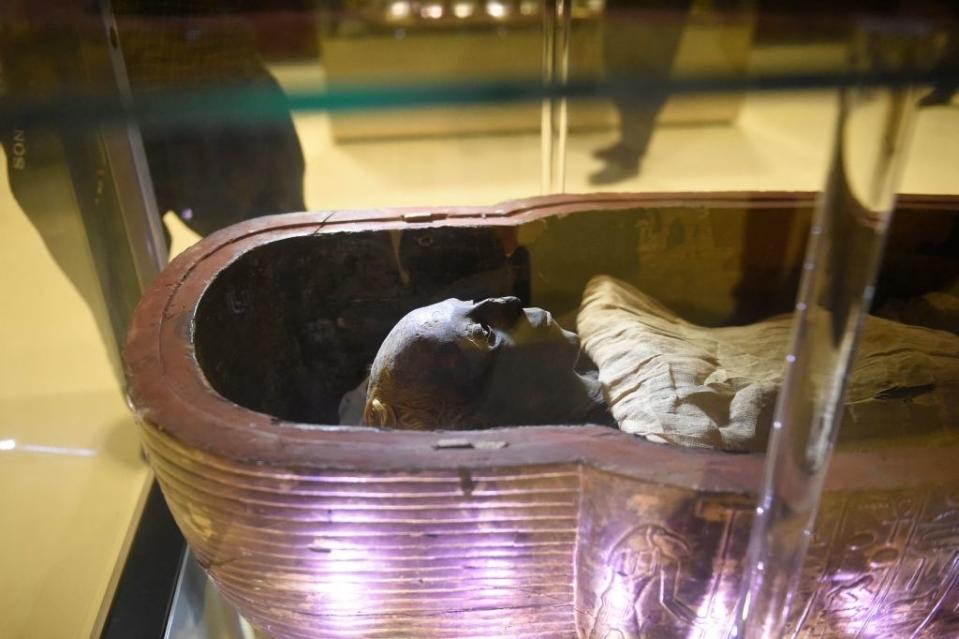
8.Ice cream was used to boost US Navy morale during WWI, considering Prohibition made it impossible to drink. Even after Prohibition ended, ice cream proved almost an obsession for the Navy. The US spent $1 million on an ice cream barge to travel around to other ships. In 1942, when the USS Lexington began to sink after being hit by Japanese torpedos and bombs (causing the death of 216 soldiers), remaining soldiers raided their freezer and ate every single container of ice cream before fleeing the ship.

9.There was a massive uptick in violent crime beginning in the 1960s and hitting a crescendo in the 1990s. While there have been multiple theories as to the cause of this increase and subsequent decrease, one of the most compelling arguments has to do with leaded gasoline. Lead poison can cause serious brain damage, and there were direct correlations with lead emissions young children were exposed to and violent crime when those children would’ve been adults. Removing lead from gasoline seems to have led to a significant decrease in crime, with the decreasing crime levels corresponding with how slowly or quickly lead-free gasoline was introduced (even at a neighborhood level).

10.We’ve barely scratched the surface when it comes to native populations in the Americas — by the time people were actively settling there, diseases had already wiped out a massive percentage. The settlers were so impressed by the fertile and lush land because the land had already been cultivated and cared for: But the people who lived there had been wiped out. There are whole societies we may just not know about.

11.In fact, Spanish explorer Francisco de Orellana claimed he found massive, prosperous civilizations and cities along the Amazon River when he visited the Inca Empire. By the time the Spanish went to check it out, they found nothing there but jungle. While it’s possible Orellana lied, it’s also possible that massive trade cities like the ones Orellana claimed to have seen completely died out over the years from disease. The existence of these ancient cities along the Amazon River is still contested today, but new evidence supports Orellana’s claims more and more. Check out this documentary for more info, and read more about Francisco here.

12.The history of lobotomies in the US is probably even more messed up than you realize. They can mostly be traced back to the influence of Walter Freeman, a neurologist who named the procedure and brought it to the US. He performed over 3,000 lobotomies from the 1930s–1960s, becoming more and more loose with his procedure and who he would use it on. About halfway into this, he came up with a technique that he said didn’t require an operating room or anesthesia, and started giving lobotomies out of his van.

Some of his patients were children, many of whom were simply badly behaved. His last lobotomy was in 1967 — and the patient, Helen Mortensen, died as a result of it. In fact, his operations had about a 14% fatality rate. Despite all this, Lobotomies continued into the ’80s in Scandinavia.
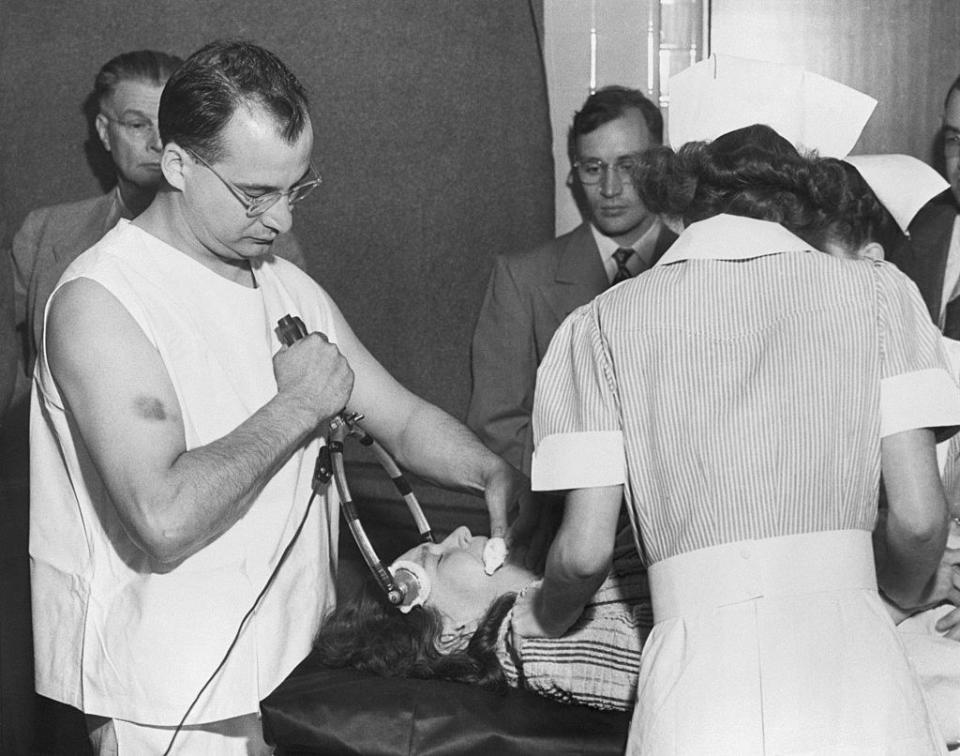
13.Speaking of lobotomies: One of President JFK’s siblings, Rosemary Kennedy, received a lobotomy in 1940 at the age of 22. Rosemary mainly seemed to deal with learning difficulties and occasionally violent mood swings, but she was by all accounts a lively young woman until the procedure, which was authorized by her father to deal with her mood swings. Some, however, have suggested it was Rosemary’s rebellious nature and the family’s fear of her getting pregnant (which would be a huge scandal for the politically involved family) that led to the lobotomy.

Rosemary’s mental abilities devolved into that of a toddler, and she was sent away to a “Catholic facility for the mentally disabled” for two decades. Her siblings were not told where she was and could not visit her.

14.Here’s another modern company with a messed-up history. Back in the 20th century, chemical conglomerate IG Farben manufactured the gas Zyklon B, which was used in gas chambers in the Holocaust. Its factory workers included unpaid labor from people in concentration camps. Part of that conglomerate? The company we know today as Bayer.

15.Bayer also briefly sold heroin as a medicine for colds, bronchitis, and pneumonia. It was marketed to children.

16.Green-colored clothing and decor became all the rage in the 1800s after arsenic was used to make a green dye. It took them years to figure out that arsenic was poison.

17.Similarly, radioactive makeup was common back in the day — as was toothpaste, hairspray, deodorant, etc. Radium paint was also used for clock hands. A large number of women and teenage girls were employed to paint the clocks and were told it was safe, despite their employer, US Radium, knowing it was hazardous. They were even encouraged to lick the tips of the brushes into points. Many of the women later died of radiation poisoning.

18.While scientists were aware radiation was dangerous, they didn’t know how much people could be exposed to and survive. Since the Manhattan Project was exposing a bunch of workers to radiation, the government decided to attempt tests to figure out just out how unsafe the radiation was. They exposed allegedly terminally ill patients to different radioactive elements (like polonium, plutonium, and uranium) to see what would happen and how long it would stay in their blood. Patients were most likely not aware of what they were receiving — and many were not actually terminally ill.
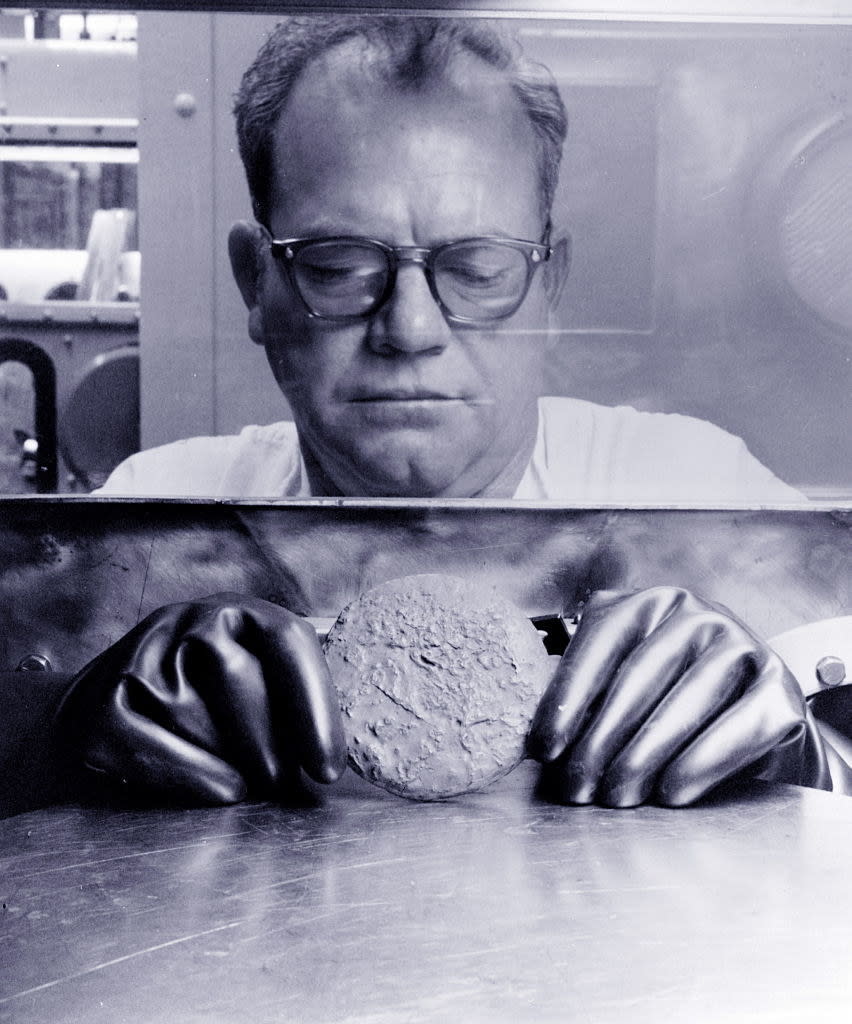
Take Albert Stevens, who had been misdiagnosed with cancer and actually just had an ulcer. He later became known as the most radioactive person alive due to the amount of radiation in his body as a result of the experiments (6,400rem over the years; yet he lived until 79). He was never told he had been exposed to plutonium; nor that he did not, in fact, have cancer.
Universal History Archive/Universal Images Group via Getty Images
Human experiments with radioactivity continued into the 1950s — subjects ranged from children to jailed people to pregnant mothers, most of whom did not know what was being done to them.
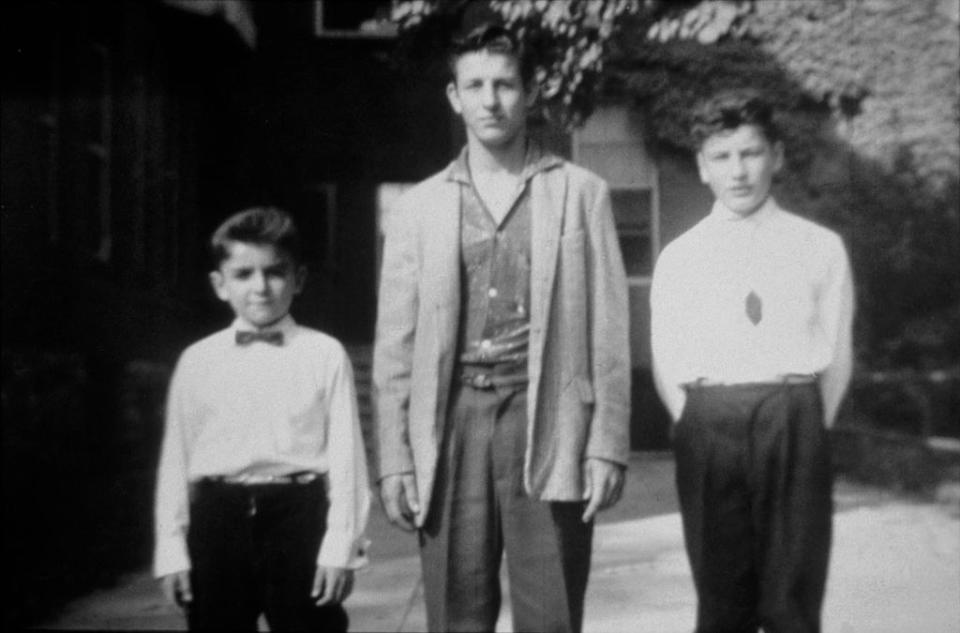
19.“In WWII Germany, [meth] was widely used among the general population and in the military. … Some historians say the only reason their Blitzkrieg campaign was so successful was because the soldiers were so hopped up on meth. There are stories of Allied commanders freaking out because the German ground forces arrived faster than humanly possible, completely overwhelming the unprepared French forces. Aside from the military, it was apparently very common for the general population to pop a Pervitin (their brand name for methamphetamine) if they were feeling a little tired, or needed to clean for a house party, etc.”

20.During the Cold War, the CIA tested out if mind control was possible using LSD, electroshock, and sleep deprivation in a project called MK-ULTRA. Who were these tests done on? American prisoners, prisoners in foreign detention centers, those in psychiatric hospitals and schools, and unwitting CIA agents themselves. Some of the victims were pregnant mothers and children.
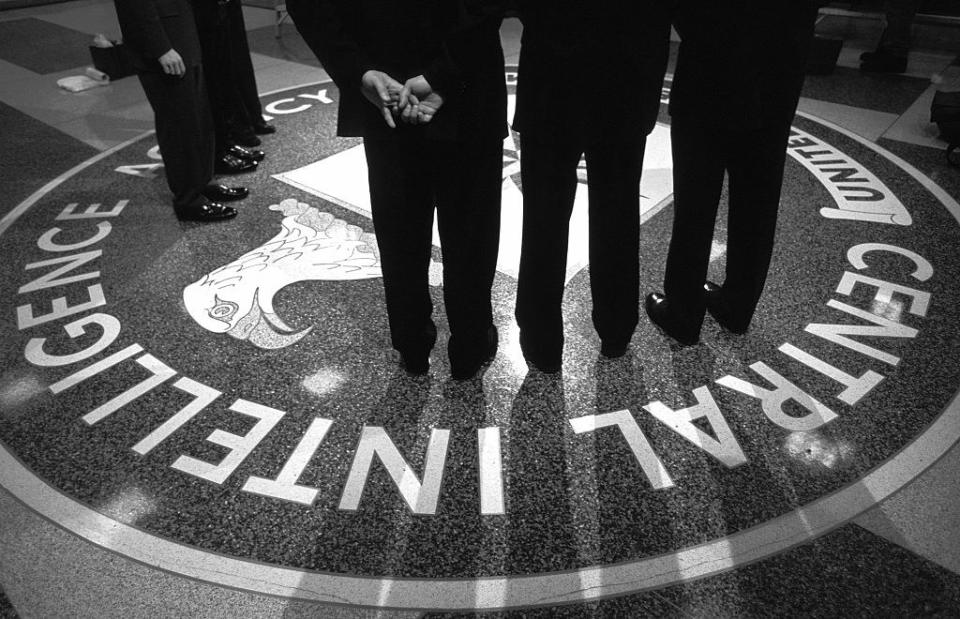
We still don’t know how many died or were permanently altered as a result of these experiments — which did not prove the possibility of mind control, though mind erasing seemed to occur. One death we do know occurred because of MK-ULTRA was that of CIA agent Frank Olson, who jumped out a window after being sent to a retreat where he was given LSD without his knowledge. The CIA covered up the true nature of his death for decades — and when Olson’s body was exhumed many years later, there was evidence he had actually been thrown out the window, leading many to believe the CIA killed him due to his knowledge.

Above, you can see President Ford meeting with Olson’s family many years later to apologize.
Bettmann Archive via Getty Images
21.You’ve heard of zoos, right? Well, did you know that many countries — including the US — had human zoos?

These were basically small fake villages where Indigenous peoples from different places — often Africa — would live in an exaggerated version of the culture these (mostly white) countries thought they lived in. Many of them died in these villages.

Sometimes, people would be displayed in cages, often naked. One man was displayed with an orangutan in the Bronx Zoo, suggesting he was an evolutionary link between orangutans and modern humans.
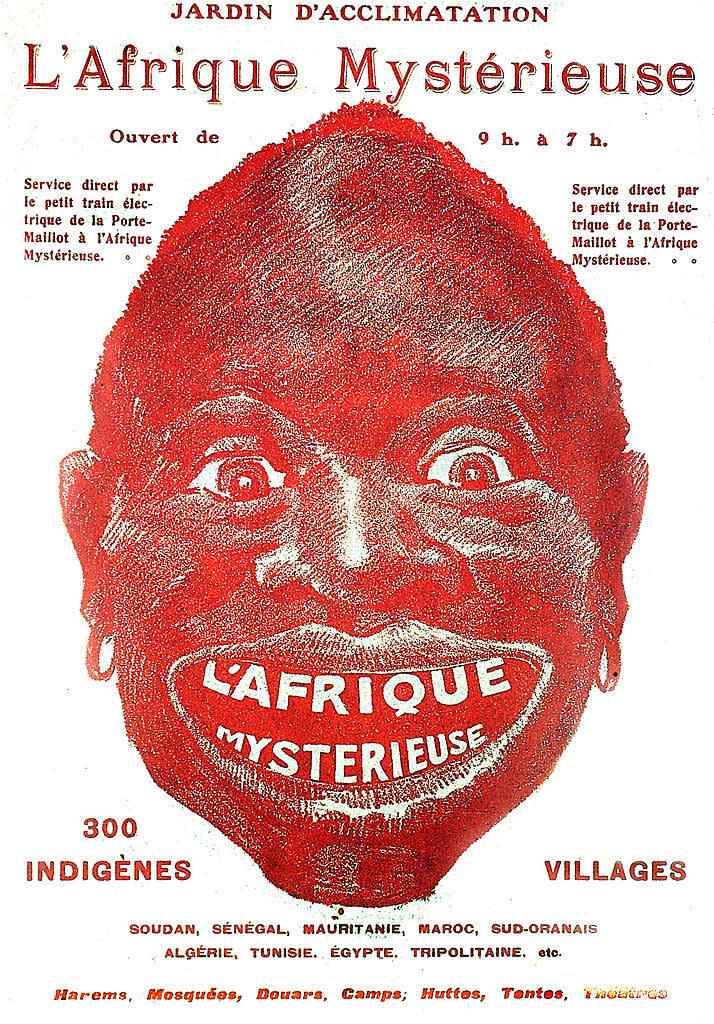
Human zoos still (kind of) exist. There was an episode of An Idiot Abroad where they visited a faux village of people with dwarfism who perform and interact with tourists.

There’s been a bunch of controversy about whether or not the Kingdom of the Little People is in fact a human zoo — inhabitants are paid — but it certainly sounds similar to past “human zoos.”

22.And finally, there are a number of lost nuclear weapons in various seas around the world, some of which are too dangerous to attempt to recover. In fact, there have been 32 nuclear weapon accidents, and at least six of those weapons were never recovered.




